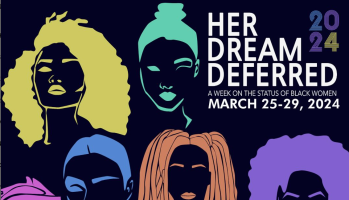
Maureen Dowd, author of “Bushworld: Enter at Your Own Risk”, speaks during a panel discussion during a luncheon at the Book Expo America convention, Saturday, June 5, 2004, in Chicago. (AP Photo/Brian Kersey)
I never smoked marijuana before, and Maureen Dowd‘s haphazard experience with a weed-laced candy bar in her Denver hotel room certainly isn’t motivating me to book a plane ticket to what is soon to be dubbed the “Mile High State.”
The New York Times columnist was in Colorado reporting on the state’s first months of legalized marijuana use when she decided to take what she later learned was too much of a bite from a “caramel-chocolate flavored (marijuana) candy bar.” Dowd wrote in a column Tuesday that the treat didn’t affect her at first, but after an hour or so, she felt like she was dying:
But then I felt a scary shudder go through my body and brain. I barely made it from the desk to the bed, where I lay curled up in a hallucinatory state for the next eight hours. I was thirsty but couldn’t move to get water. Or even turn off the lights. I was panting and paranoid, sure that when the room-service waiter knocked and I didn’t answer, he’d call the police and have me arrested for being unable to handle my candy.
I strained to remember where I was or even what I was wearing, touching my green corduroy jeans and staring at the exposed-brick wall. As my paranoia deepened, I became convinced that I had died and no one was telling me.
It took all night before it began to wear off, distressingly slowly. The next day, a medical consultant at an edibles plant where I was conducting an interview mentioned that candy bars like that are supposed to be cut into 16 pieces for novices; but that recommendation hadn’t been on the label.
Dowd’s column in its entirety is pretty innocuous, given that she wasn’t doing anything illegal and, I guess, was “on the job.” But given her lofty status as a Times writer and the privilege that comes with such a position and the fact that she is White, there is something quite disturbing about her recreational use of a drug that has lead to disproportionate arrests of thousands of African-American and Latino people who don’t have the privilege of getting high and writing about it for an international publication.
I also find it ironic that the states (Colorado and Washington) with some of the least ethnically diverse populations have legalized the drug. With a population that is 88 percent White, the only thing Whiter than Colorado’s population is its ski resorts.
Despite the fact that Whites and Blacks use marijuana at the roughly the same rate, a Black person is 3.73 time more likely than a White person to be arrested for possessing the drug, according to the ACLU. And even after running on a platform to end racially unjust arrests, Blacks and Latinos made up 86 percent of marijuana arrests in the city during the first quarter of N.Y. Mayor Bill de Blasio‘s administration–even as overall arrests declined. What is more disturbing about these figures is that arrests were significantly higher in Black and Latino neighborhoods as oppose to White communities whose use of the drug is similar, according to the Marijuana Arrest Research Project.
For me, the distinction is clear: If you are Black or Latino and in a neighborhood comprised mostly of people of color, your use of marijuana is seen as criminal. If you are White, not so much.
This is why Dowd’s piece disturbs me so much. Twitter reactions to Dowd’s use of the weed almost came across as, “Aww, that’s so cute,” but I have to wonder what the reactions would have been had an African-American female reporter gone to Colorado and done the same thing. Sure, she wouldn’t have gotten arrested, but I doubt the Twitterverse would have been as jovial.
Dowd’s piece also is a recent reminder of the double standard I notice when Whites and Blacks experiment with drugs. In April, VICE published a YouTube video of one of its correspondents in South Africa experimenting with a dangerous cocktail called “nyaope,” a drug laced with HIV medication.
Maybe it’s me, but I find it curious how drug use by upper-middle class White people can become an intellectual discussion on the residual consequences of drug legalization or the misuse of medication when so many Black men and women who do the same thing are viewed through the lens of criminality.
When publications like VICE or the New York Times publish pieces on their journalists’ reports on personal drug use — who are almost always White, by the way — they normalize the use of drugs by White people without considering how minorities often see the media as criminalizing them for similar actions.
I grew up in a drug house in Detroit, where any kind of drug was available. I never had an interest in them and never used. Perhaps the time when a rival gang broke in to my house when I was 12 years old and beat my drug-dealing uncle so badly it took two weeks for my grandmother to clean up all of the blood made me less than enthusiastic about taking a toke of the sticky green. The .375 Magnum one of the dealers pointed at the back of my head as they severely beat my uncle didn’t help either.
While I never had any use for drugs, that doesn’t stop people from assuming that I, a Black man from inner-city Detroit, used every drug imaginable.
During a get-together with a group of friends, in which I was the only Black person in a room of Whites, one of them asked us to describe our first experience with drug use. One by one, each of these middle-class suburbanites named drugs ranging from speed, cocaine, weed laced with cocaine, and other drugs that made me blush in discomfort. When my turn came, all eyes zeroed in on me as if I was going to reveal a magic cocktail for them to take home. They were very disappointed when I said I have nothing to contribute to the conversation.
“Come on, Detroit!” one of my friends said.
“Nope. Never,” I replied.
However, if Maureen Dowd and I were walking down the street in New York City, the cops would likely stop me on suspicion of marijuana possession before they would stop the Pulitzer Prize winner who wrote a national column on getting stoned in the Mile High City.
Of course, you wouldn’t be able to tell if Dowd was a Times writer who wrote a piece about using marijuana; however, people always seem to be able to “tell” that I must have used drugs.
I wonder why?
Maureen Dowd’s Weed Candy Experiment Personifies White Privilege was originally published on newsone.com














